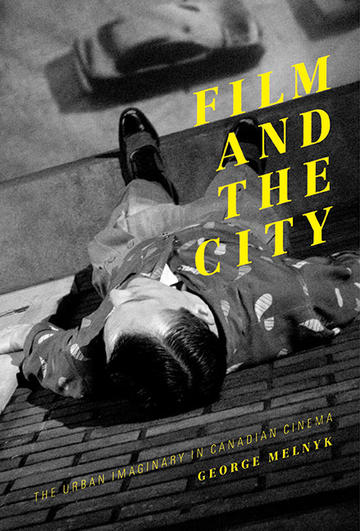About BC Books Online
BC Books Online was created for anyone interested in BC-published books, and with librarians especially in mind. We'd like to make it easy for library staff to learn about books from BC publishers - both new releases and backlist titles - so you can inform your patrons and keep your collections up to date.
Our site features print books and ebooks - both new releases and backlist titles - all of which are available to order through regular trade channels. Browse our subject categories to find books of interest or create and export lists by category to cross-reference with your library's current collection.
A quick tip: When reviewing the "Browse by Category" listings, please note that these are based on standardized BISAC Subject Codes supplied by the books' publishers. You will find additional selections, grouped by theme or region, in our "BC Reading Lists."
 Enlarge Cover
Enlarge Cover
Most Canadians are city dwellers, a fact often unacknowledged by twentieth-century Canadian films, with their preference for themes of wilderness survival or rural life. Modernist Canadian films tend to support what film scholar Jim Leach calls “the nationalist-realist project,” a documentary style that emphasizes the exoticism and mythos of the land. Over the past several decades, however, the hegemony of Anglo-centrism has been challenged by francophone and First Nations perspectives and the character of cities altered by a continued influx of immigrants and the development of cities as economic and technological centers. Examining fourteen Canadian films produced from 1989 to 2007, Film and the City is the first comprehensive study of Canadian film and “urbanity”—the totality of urban culture and life. Melnyk considers how filmmakers, films, and urban audiences experience, represent, and interpret urban spatiality, visuality, and orality. In this way, Film and the City argues that Canadian narrative film of the postmodern period has aided in articulating a new national identity.
George Melnyk is associate professor in the Department of Communication and Culture at the University of Calgary. He has published a number of books on Canadian cinema, including One Hundred Years of Canadian Cinema (2004), Great Canadian Film Directors (2007), The Young, the Restless, and the Dead: Interviews with Canadian Filmmakers (2008), and The Gendered Screen: Canadian Women Filmmakers (2010).
Film and the City puts forth a new paradigm for the consideration of Canadian identity in cinema. Contending that earlier models were dependent on a largely rural representation of the nation. Melnyk shows how recent urban films facilitate and showcase a new mode of identity formation and articulation ... Through examining specific films and filmmakers with an eye to their locality, and by folding them into a composite constellation that illustrates new ideas of Canadian identity, this text will surely provide a new marker for discussions of this evergreen topic.
?William Beard, University of Alberta


